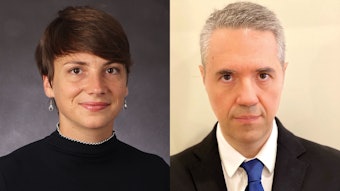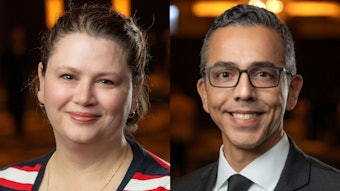Register now for #ISC23
ISC Chair Tudor G. Jovin, MD, provides a preview of this year’s conference, including timely programming, an array of oral, moderated posters (professor-led poster rounds) and poster presentations.

Science takes center stage at the International Stroke Conference 2023. From pre-conference symposia to late-breaking science, ISC 2023 will feature more than 1,500 presentations in 17 categories that emphasize basic, clinical and translational sciences as they evolve toward a better understanding of stroke pathophysiology with the goal of developing more effective therapies.
The conference begins with four pre-conference symposia on Feb. 7, 2023: HEADS-UP, Stroke in the Real World, Stroke in the Lab World and the State-of-the-Science Stroke Nursing Symposium.
 Tudor G. Jovin, MD
Tudor G. Jovin, MD
According to ISC Chair Tudor G. Jovin, MD, this year’s conference, Feb. 8-10 in Dallas + Virtual, continues to raise the bar with timely programming, including an array of oral, moderated posters (professor-led poster rounds) and poster presentations.
During the conference, clinical sessions will focus on risk factors and prevention; cerebrovascular systems of care; imaging; neuroendovascular; acute treatment: systemic thrombolysis and cerebroprotection; large vessel disease from arteries to veins (non-acute treatment); in-hospital care, from the ICU to discharge; clinical rehabilitation and recovery; and health services, quality improvement, and patient-centered outcomes.
Basic Science sessions will focus on translational basic science.
Further specialized topics include cerebrovascular manifestations of COVID-19; brain health; intracerebral hemorrhage; cerebrovascular nursing; advanced practice providers and therapists; pediatric cerebrovascular disease; aneurysms and vascular malformations; and ongoing clinical trials.
According to Dr. Jovin, new features of the conference include expanded integration of translational science presentations within bench-to-bedside invited symposia and featured sessions encompassing recordings of live neurointerventional cases and lessons in training highlighting case studies on complexities and complications.
Here are a few session highlights:
- Two sessions on case recordings in live conditions: Best management practices
o Endovascular Ischemic Stroke Interventions
o Endovascular Management of Aneurysms and Arteriovenous Malformations
- Complexities and Complications: Lessons in Training
- Three sessions from Bench to Bedside and Beyond
o Sickle Cell Disease and Stroke Risk Across the Lifespan and Research Spectrum
o Modern Perspectives in Cerebral Amyloid Angiopathy
o Acute and Chronic Neuroinflammation in Stroke: Potential Targets for Novel Therapies
- Pediatric Stroke Emerging Therapies: From Acute Care to Rehabilitation
- The Road to Tenecteplase in Routine Clinical Practice











